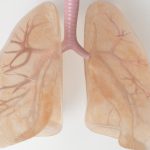Red meat may increase inflammation in the body, study finds
Recent research led by Dr. Alexis Wood from Baylor College of Medicine challenges long-held beliefs about red meat and its impact on inflammation, a...
More than 1 billion people may live with muscle and bone diseases by 2050
A recent study published in Lancet Rheumatology, funded by the Bill and Melinda Gates Foundation, predicts a significant increase in musculoskeletal disorders globally.
Researchers anticipate...
Many people with diabetes get their cancer diagnosis too late
A significant study by the International Agency for Research on Cancer has shed light on the relationship between type 2 diabetes and cancer diagnosis.
The...
Low-salt diet strongly reduce high blood pressure, study finds
Recent findings presented at the American Heart Association’s Scientific Sessions 2023 demonstrate that a significant reduction in daily sodium intake can notably lower systolic...
Gut bacteria provide new hope in colorectal cancer treatment
Researchers at the University of Alberta have made a significant breakthrough in colorectal cancer research, published in Frontiers in Immunology.
They discovered that metabolites, produced...
Drones deliver heart-saving aid faster than ambulances
Cardiac arrest is a severe medical emergency where the heart suddenly stops beating, requiring immediate intervention. Timely use of an Automated External Defibrillator (AED)...
Blood tests for cancer DNA can improve detection and treatment
In a groundbreaking study, a team led by Nicholas Mitsiades, a clinical scientist at UC Davis Comprehensive Cancer Center, has made a significant discovery...
Blood pressure may decrease over 10 years before end of life, study finds
Researchers from the University of Exeter conducted a comprehensive study analyzing the blood pressure trends in elderly individuals.
By examining the medical records of 46,634...
AI can find lung cancer risk in non-smokers through chest x-rays
An innovative study presented at the annual meeting of the Radiological Society of North America (RSNA) reveals a groundbreaking use of artificial intelligence (AI)...
Scientists find a new way to protect against Alzheimer’s
Alzheimer's disease, a condition marked by memory and cognitive decline, begins developing in the brain decades before symptoms appear.
As the disease progresses, the brain...










